THE 3rd Environment and Sustainable Development Conference, organised by Al-Azhar University, wrapped up today with a set of recommendations.
The conference was part of preparations for COP27 in 2022 in Sharm el-Sheikh.
Al-Azhar Grand Imam Ahmed Tayyeb, Minister of Awqaf (religious endowments) Mohamed Mokhtar Gomaa and Egypt’s Mufti Shawky Allam attended the three-day conference, held under the auspices of Egyptian President Abdel Fattah El Sisi.
The conferees recommended the formation of a scientific committee comprising researchers and scientists in environmental affairs, representatives of religious institutions, sociologists and psychologists to devise a science curriculum in easy-to-understand language. This course will be for all educational levels to raise awareness of the negative effects of the climate crisis.
University students will be encouraged to prepare graduate projects on the impact of climate change crisis.
Another recommendation is to enhance the role of youth in facing this humanitarian crisis through the launch of the Climate Ambassadors project, which will qualify 100 youth leaders specialised in environment sciences.
Al-Azhar University will present a model for confronting climate change at COP27. The model is represented in one of its college buildings, implementing the results and recommendations of the conference, from rooftop horticulture to clean energy to generate electricity, architectural design, green environment and everything that sustains resources.
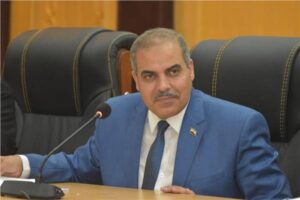
President of Al Azhar University Dr. Mohamed el-Mahrasawy told The Egyptian Gazette that these recommendations are to be submitted to the authorities concerned to combine efforts.
“As the sciences are integrated, so should efforts made to combat climate change,” el-Mahrasawy said, adding that the university has assumed the responsibility to educate the community and raise awareness. He also said that the university is to publish a book on climate change.
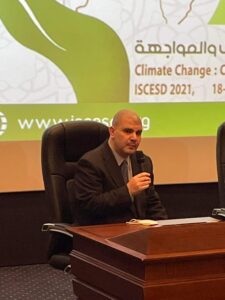
Dr.Walid Darwish, Advisor to the Minister of Trade and Industry for environmental policies, told this newspaper that such conferences show the world how Egypt is making strides in environment issues besides highlighting national strategies.
“This will help the world understand how Egypt is giving a top priority to the file. So, when the country seeks support to implement certain mitigation procedures, we can find swift response,” he said.
Darwish went on to say that one of the conference recommendations is to publish all research and presentations to show the world how Egypt is making real progress.
“Egypt is one of the least responsible countries for thermal emissions, with an estimated amount of 0.6 per cent, which is very small compared to the major industrialised countries,” Darwish said.
He also went on to say that the renewable energy we use represents 20 per cent, and we will reach 42 per cent in 2035, and next year we will see green hydrogen.
Darwish said Egypt has gone a long way in adapting many industries, referring to the ministry’s collaboration with United Nations Industrial Development Organisation (UNIDO).
“For instance, we worked with UNIDO in energy efficiency and solar energy projects by urging factories to use that energy to heat water among other processes,” he said.
A ministerial committee has been formed under the chairmanship of Prime Minister Moustafa Madbouli so that every ministry can discuss its plans and demands, he added,
“Industry is one of the important sectors in the country as it represents 30 per cent of GDP and this requires economic and industrial measures to adapt to climate changes,” he added.
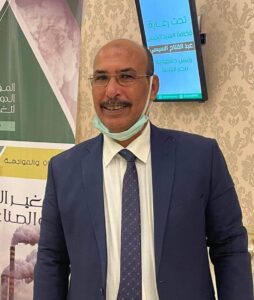
Dr.Ahmed Salem, physics professor at the Assiout branch of Al-Azhar University, said climate change is not just an “elite” or “decision makers'” issue.
“It is the issue of all people. So, we need to raise public awareness starting from very early educational stages,” Salem said.
“Academia plays a vital role in combating climate change,” Salem added. “We as academics conduct scientific research to mitigate such severe impacts and adopt more environment-friendly procedures and solutions,” he said.
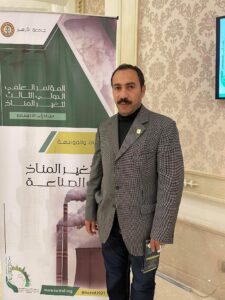
In a related context, Dr. Fawzy Youness, senior researcher at the Desert Research Centre, said the conference was timely as the whole country is gearing up for COP27, which is a mile stone in the country’s history.
“Environmental governance, green economy and ecological civilisation are key factors,” Youness said.
Youness, who was also a lecturer at a climate ambassadors training programme, stressed the paramount importance of carbon neutrality acceleration to put the brakes on the alarming impacts of climate change.
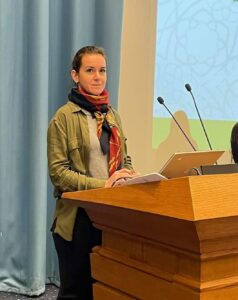
Spanish environmentalist Carla Barrado spoke of the importance of youth efforts in addressing climate change.
“We also need to find more solutions to this problem. We have to use the tools and we must increase them,” Barrado said.
“Unless you live in a part of the world that suffers from increasingly abnormal weather, it is difficult to fully appreciate and understand the reality of climate change,” she added.






Discussion about this post